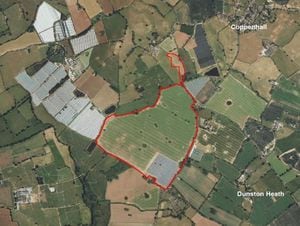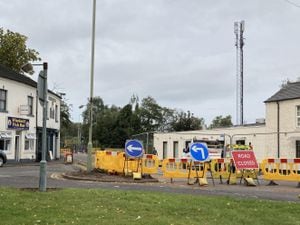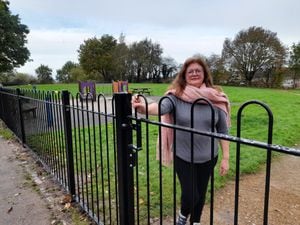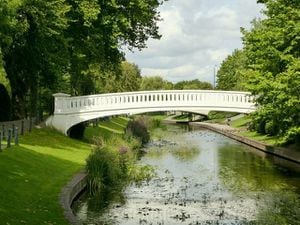Solar farm plans refused permission
Plans to install solar panels in countryside near Stafford have been thrown out by councillors concerned about loss of good quality farmland for food production.

The application to install a photovoltaic electricity generating station on 70.77 hectares (174.88 acres) of land at Littywood Farm, Coppenhall, was recommended for approval by planning officers at South Staffordshire Council.
But planning committee members, who visited the site earlier this week, went against the recommendation at their meeting on Tuesday (September 19) and voted to refuse permission after hearing that the development would cover a site containing more than 50% “best and most versatile agricultural land” (BMV). There were also concerns the site would make the area of open countryside look industrial.
Simon Chapman, who spoke in support of the application at Tuesday’s meeting, said the installation would only be temporary however, remaining in place for around 40 years before the site returned to its current state. “The application has been submitted by Elgin, who have a proven track record of developing solar parks sympathetically within the countryside throughout the UK and Ireland”, he told committee members.
“The applicant has secured a viable connection to the grid, which is critical in determining the position of solar farms – the importance of this cannot be underestimated. The proposed solar farm will provide a capacity of around 40MW per annum, which equates to the average consumption of circa 9,300 typical family homes.
“The principle of solar development accords with Government plans and national policies to deliver net-zero and de-carbonise the economy and the assessment considers this is an appropriate place for a solar farm. While concerns have been raised about loss of agricultural land, we would highlight that this proposal is for a temporary use and the land would continue to be in agricultural use, in the form of animal grazing.
“While the site is in use as a solar farm it would enable the soil to regenerate after years of agriculture and the site is located outside sensitive boundaries, like Green Belt. The solar farm development will contribute to sustainable development and a reduction in CO2 emissions.”
South Staffordshire Council received 11 objections from residents to the proposals, as well as from Dunston and Coppenhall Parish Council. David Martin, one of the objectors, said: “An application involving alternative energy does not give carte blanche in terms of development location.
“Any development, but certainly one of such enormity and impact as this, must crucially be in the most appropriate place. The open and rich agricultural fields of this site are a wholly inappropriate location for proposed development.
“You have seen the expanse of valuable food-producing fields with a distinctive rural character. Your development plan has specific protections for locations such as this and the application is contrary to it.
“The site comprises at least half best and most versatile agricultural land, which is protected by national policy against significant and inappropriate development. Development on this site is simply not necessary.”
District councillor Andrew Adams, who also spoke against the plans on Tuesday, said: “This application is the tip of an iceberg, with Brewood, Coven and other villages also facing a barrage of applications. it seems wherever the National Grid pylons are sited, a planning application is just round the corner.
“A major part of this application gives me significant concern – use of BMV land. This type of land is protected by central government regulation and policy and the percentage of BMV land in this application is unacceptable.
“This land was offered for sale by a leading agricultural agent not long ago and it stated ‘good quality land with significant yields: wheat, barley and rapeseed’. We accept we need to take strides producing clean and green energy, but not at the cost of sacrificing good, high-yielding agricultural land.
“We as a nation will be overloaded with energy, but in the situation of being in food poverty. These developments will change the character and appearance of the landscape and the cumulative affect of this should be considered.”
Vice chairman Councillor Bob Cope, who proposed that the application be refused, said: “I do support solar farms and battery energy but it has to be in the right place. I don’t consider this application is in the right place.
“I’ve got big concerns about food production and one of the key issues is climate change. We import 40% of all our food from abroad. That food has to get to us on rail or planes and that affects climate change as well, so in balance food production and the fact we have to import it is as important as solar energy.”
Committee member Councillor Kath Perry said: “It’s just a blot on the landscape as far as I’m concerned. While I agree we need renewable energy, not the cost of agricultural land.”





